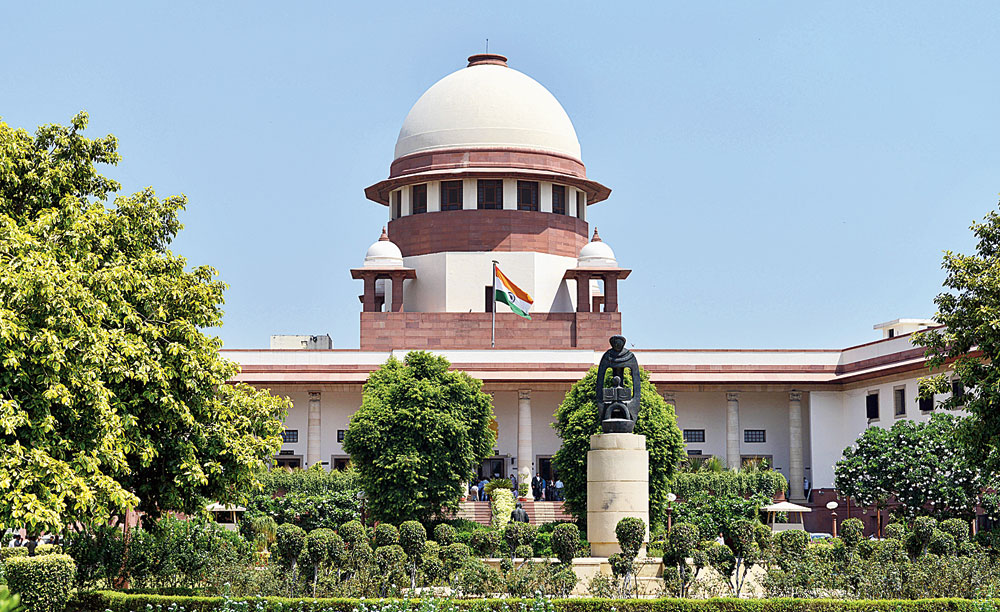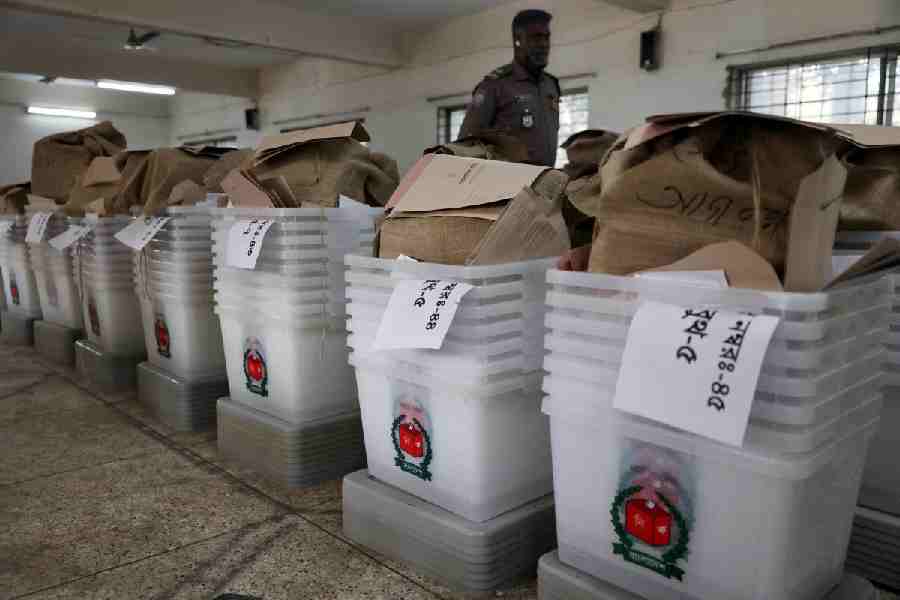Justice Abdul Nazeer, the dissenting judge in the Ayodhya case on Thursday, questioned the rationale of the Supreme Court’s decision not to refer to a constitution bench certain “questionable” observations of a five-judge constitution bench in 1994 that he felt were arrived at without comprehensive examination.
In the 1994 Ismail Faruqui case, the apex court had observed that a mosque was not an essential part of Islam and that namaz could be offered anywhere, “even in the open”.
In his separate dissenting view, Justice Nazeer noted that the top court had recently referred certain other issues such as polygamy, nikah halala, right of people to hold religious events at public places and female genital mutilation in the Bohra Muslim community to constitution benches. He felt the court was not showing similar inclination in referring the Ayodhya dispute to a constitution bench.
“It is relevant here to state that by an order dated 26.3.2018 a three-judge bench of this court in the Sameena Begum v. Union of India & Ors (case)… referred the matter relating to polygamy, including nikah halala, nikah mutah and nikah misya, to a constitution bench,” Justice Nazeer said in his dissenting judgment.
“Moreover, a two-judge bench of this court on 6.7.2018 in the Jyoti Jagran Mandal v. NDMC & Anr (case)… referred the matter in relation to the policy decision permitting Ram Leela and puja once in a year in public parks to a constitution bench.
“In the Sunita Tiwari v. Union of India & Ors (case)… a three-judge bench of this court was considering the question relating to banning the practice of female genital mutilation…. It was submitted by the senior counsel appearing for the contesting respondent that the matter should be referred to a larger bench for an authoritative pronouncement because the practice is an essential and integral practice of the religious sect…
“Considering the constitutional importance and significance of the issues involved, the following (the Ayodhya dispute) need to be referred to a larger bench,” Justice Nazeer said. He agreed with the petitioners that the 1994 observations of the constitution bench did influence the 2010 Allahabad High Court verdict trifurcating the disputed land.
“It is clear that the questionable observations in (the) Ismail Faruqui (case) have certainly permeated the impugned judgment (of Allahabad High Court). Thus, the impugned judgment can be claimed to be both expressly and inherently affected by the questionable observations made in (the) Ismail Faruqui (case),” Justice Nazeer wrote.
He added: “For the present, we are concerned with the approach of the court in concluding questionable observations without examining the doctrine, tenets and beliefs of the religion. The conclusion in Paragraph 82 of (the) Ismail Faruqui (case) that ‘a mosque is not an essential part of the practice of the religion of Islam and namaz by Muslims can be offered anywhere, even in open’ has been arrived at without undertaking comprehensive examination.”
According to Justice Nazeer, the 1994 judgment was contrary to certain other rulings of the apex courts, starting from 1954, that stated that whether a particular place of worship was integral to a particular religion could be determined only on the basis of doctrines, religious texts and beliefs of that religion.
The 1994 decision was arrived at without examining the various doctrines and religious texts of Islam and as such it need reconsideration, Justice Nazeer felt.
The majority view of Chief Justice Dipak Misra and Justice Ashok Bhushan, however, said on Thursday: “We conclude that observations as made by the constitution bench… which have been questioned by the petitioners were observations made in reference to acquisition of place of worship and has to confine to the issue of acquisition of place of worship only. The observation need not be read broadly to hold that a mosque can never be an essential part of the practice of… Islam.
“We again make it clear that questionable observations made in Ismail Faruqui’s case as noted above were made in context of land acquisition. Those observations were neither relevant for deciding the suits nor relevant for deciding these appeals.”











